04:48
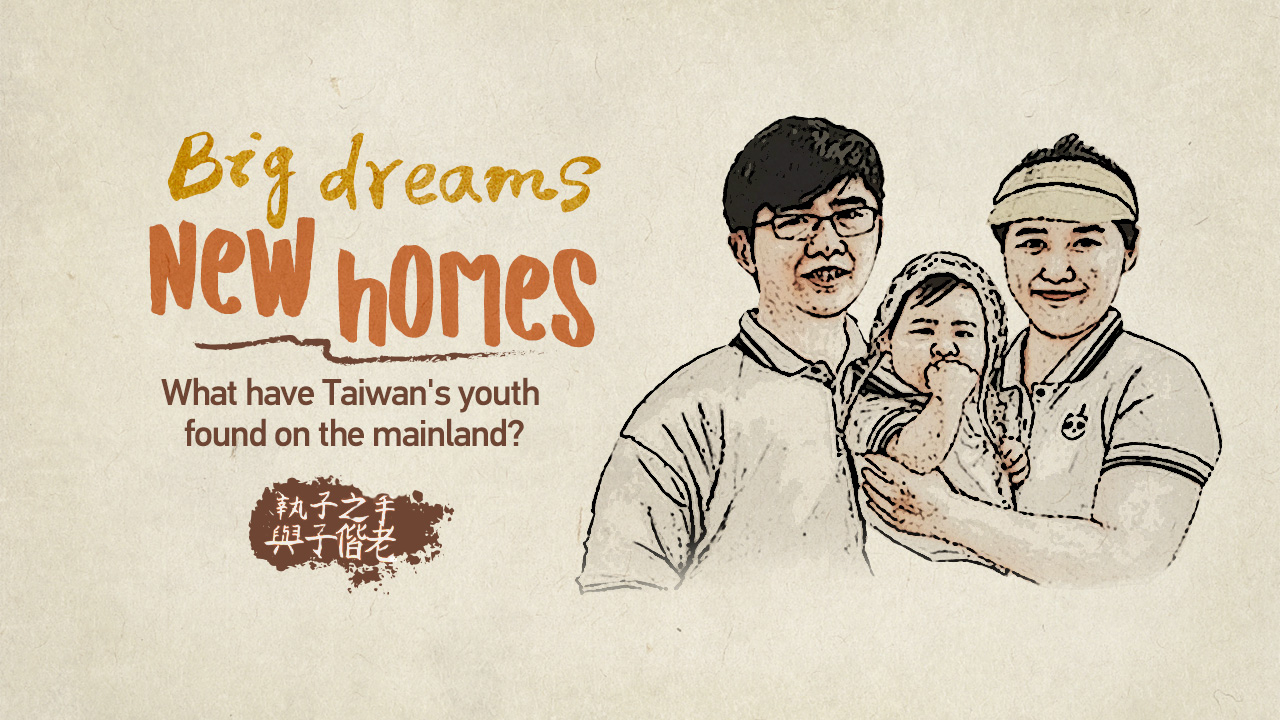
"On the mainland, I have not only realized my dreams, but also got married and have my own home. This is amazing!" Luo Dingjun, co-founder and director of the WeChat Official Account (OA) "Cross-Strait Youths," told CGTN.
"I'm fulfilled that our platform observes more Taiwan youths like me find their dreams and build homes here (on the mainland)."
Luo, born in 1987 in Taipei, is a PhD candidate at the School of Public Administration at Beijing's Tsinghua University, whose research focuses on cross-Strait relations, especially the employment and entrepreneurship of Taiwanese youths on the mainland.
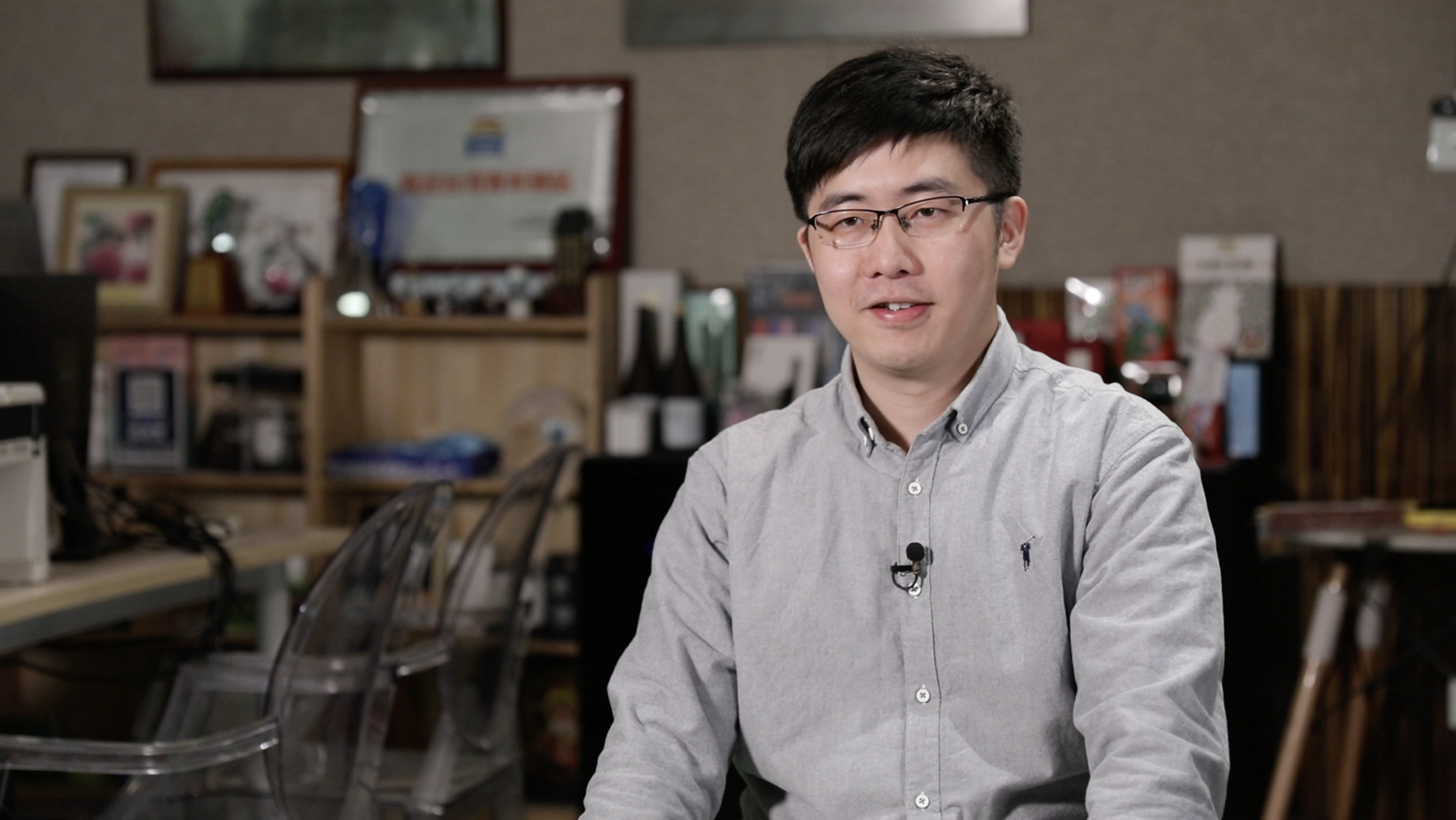
Luo Dingjun during an interview with CGTN. /CGTN Photo
Luo Dingjun during an interview with CGTN. /CGTN Photo
A place where dreams start
In 1998, Luo came to the mainland for the first time on a five-day trip in Beijing. Ten years later he returned to join a summer camp exploring more about traditional Chinese culture.
For Luo, one of the key turning points in his life happened in 2011 when he was an exchange student at Jilin University, in northeast China's Jilin Province.
"First, I studied on the mainland and got along well with my classmates," he recalled, saying that he then had a clear understanding of mainland youths, who are "aspiring and full of hope."
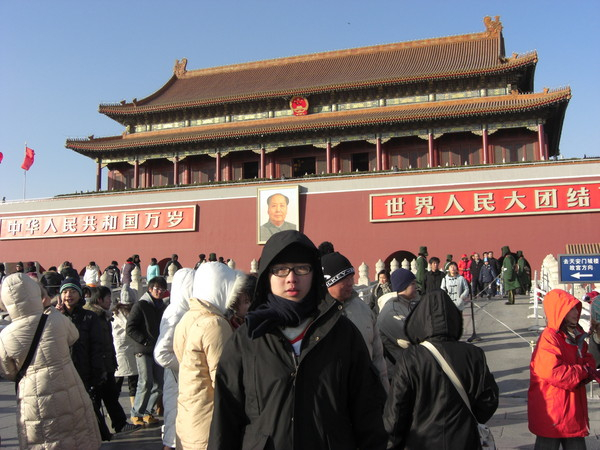
Luo Dingjun visited Tian'anmen Square in Beijing in 2008. /Photo courtesy of Luo Dingjun
Luo Dingjun visited Tian'anmen Square in Beijing in 2008. /Photo courtesy of Luo Dingjun
"Since then, I've been determined to chase my dreams on this land," he said.
In 2014, he arrived in Tsinghua University in Beijing to start his PhD. In the same year, Luo launched the WeChat OA – the WeChat equivalent of a Facebook page – Cross-Strait Youths with several of his Taiwanese friends studying in Beijing, as well as his mainland friends in Taiwan.
"As we all belong to the same community called 'the cross-Strait group,'" Luo said, "We realized that we could and should do something to help youths across the Strait know and understand each other more, and gather them all together. So we create the Cross-Strait Youths OA."
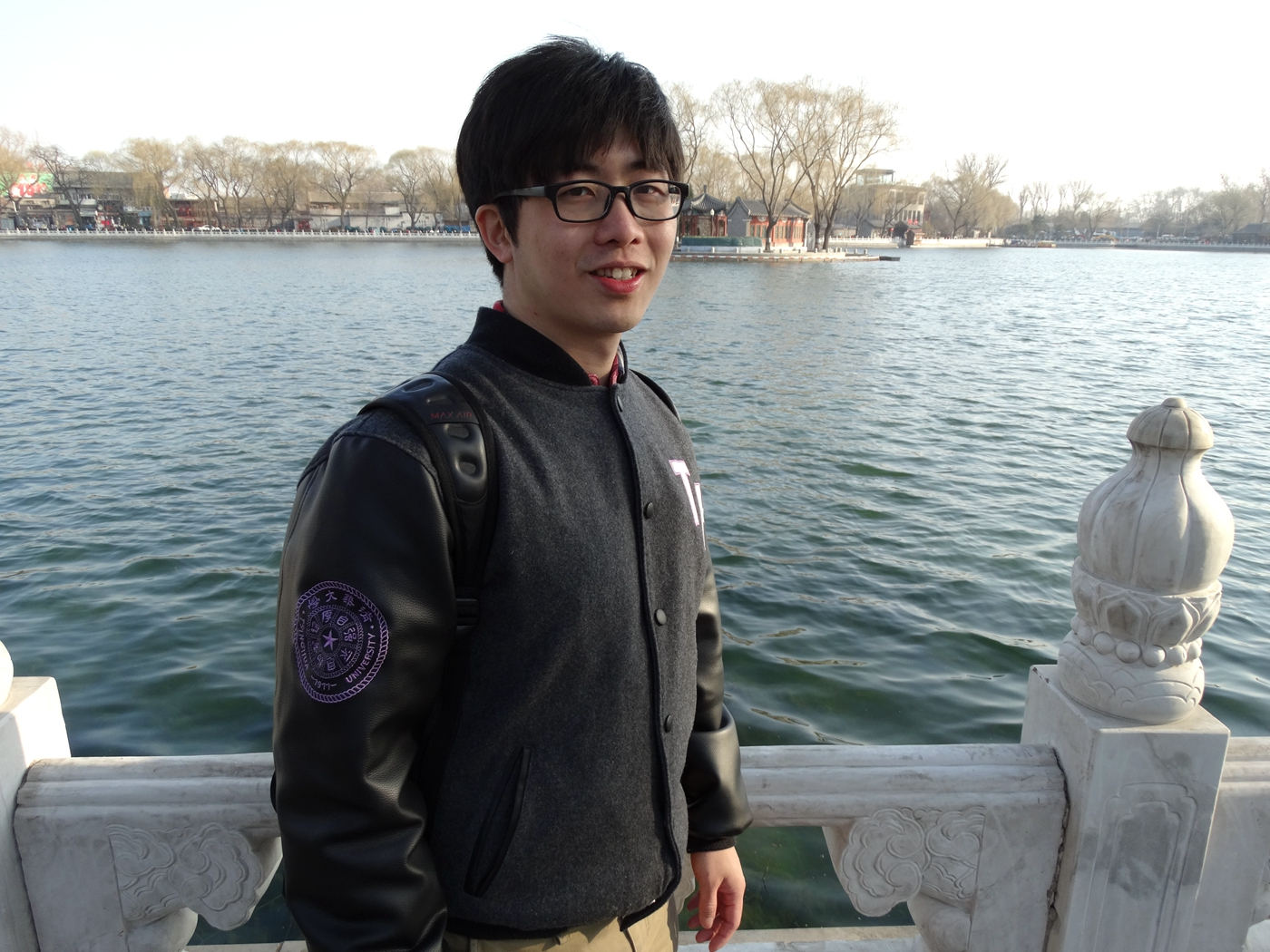
Luo Dingjun is a PhD candidate from the School of Public Administration at Beijing's Tsinghua University. /Photo courtesy of Luo Dingjun
Luo Dingjun is a PhD candidate from the School of Public Administration at Beijing's Tsinghua University. /Photo courtesy of Luo Dingjun
With a total of 760 original posts to date, Cross-Strait Youths covers almost every aspect of life, and not only gives tips about studying at university and living either side of the Strait, but also tells numerous true stories about the community.
Chasing dreams across the Strait
The cross-Strait group includes people from Taiwan who study, work and start businesses on the Chinese mainland and their spouses, as well as their mainland counterparts on the island.
"We frequently travel across the Strait every year. So we call ourselves 'the cross-Strait group,'" Luo explained, stressing that, "The estimated number of this group is at least four or five million, which is quite a huge population."
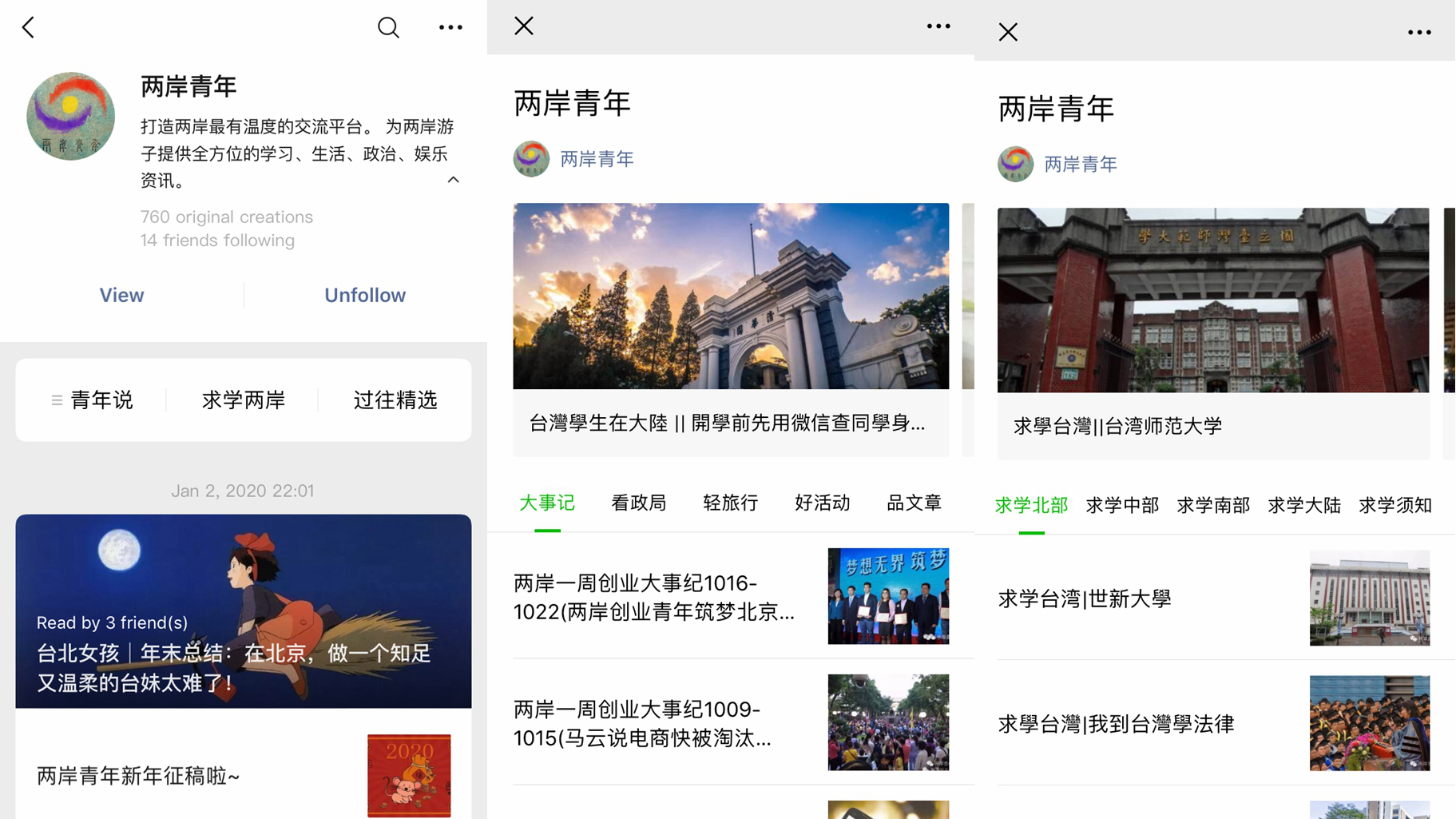
Screenshots show the WeChat OA "Cross-Strait Youths" and some of the posts on it.
Screenshots show the WeChat OA "Cross-Strait Youths" and some of the posts on it.

Screenshots show the WeChat OA "Cross-Strait Youths" and some of the posts on it.
Screenshots show the WeChat OA "Cross-Strait Youths" and some of the posts on it.
According to the Ministry of Education, the number of Taiwanese students studying at the Chinese mainland's colleges and universities exceeded 12,000 last year, with more than 7,000 obtaining scholarships in the past three years.
Luo's OA, which has about 70,000 followers so far, serves as a public platform for cross-Strait communication and is overwhelmingly popular among the special group, especially among Taiwanese youths who study and work on the mainland.
He also referred to the growing trend of students from Taiwan studying on the Chinese mainland. "Among our followers, more and more young people from Taiwan left messages to us, learning about studying and working on the Chinese mainland. Some of them then became my friends," he told CGTN.
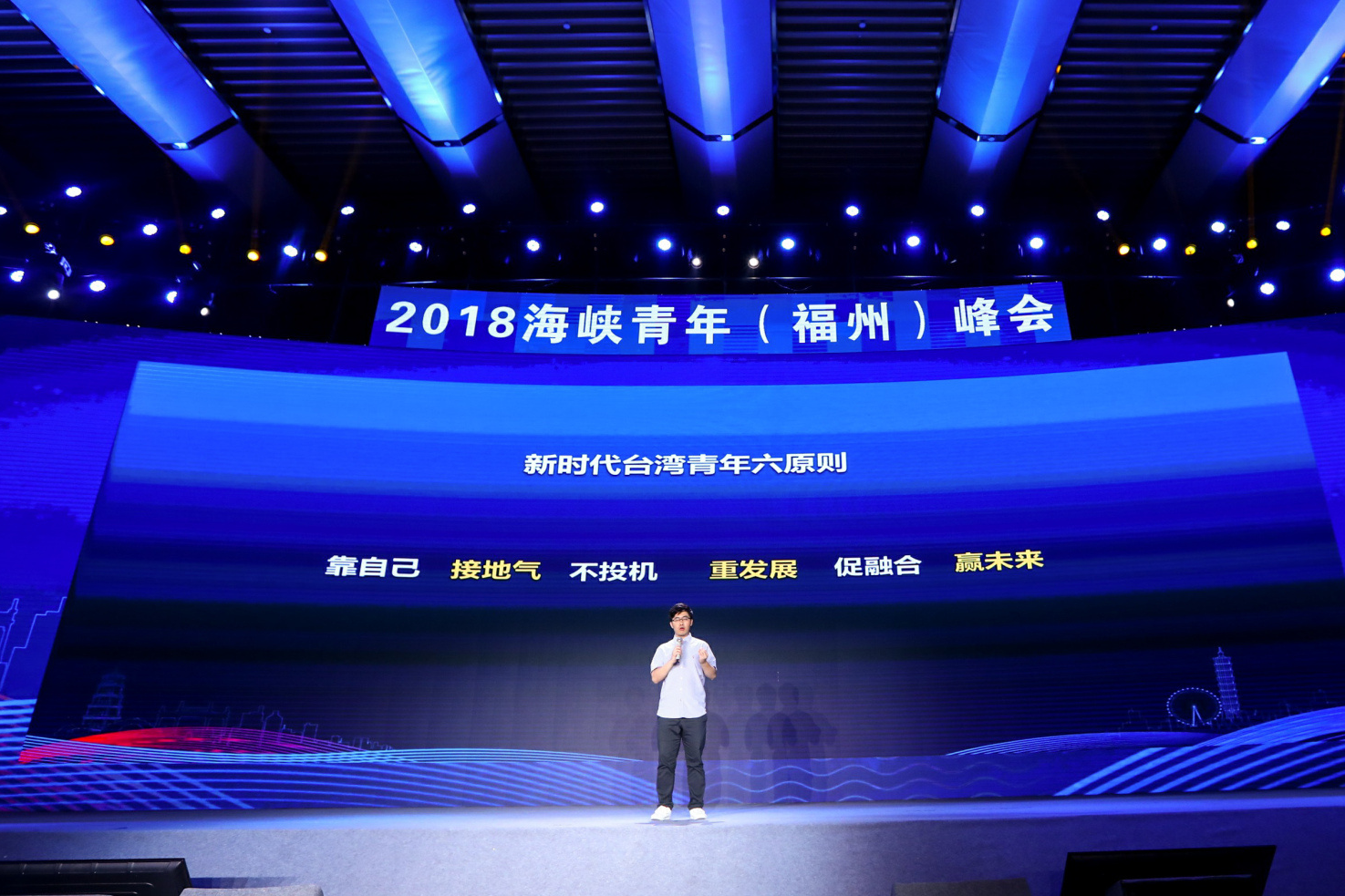
Luo delivers a speech at the 2018 Strait Youth Summit in Fuzhou, Fujian Province, China. /Photo courtesy of Luo Dingjun
Luo delivers a speech at the 2018 Strait Youth Summit in Fuzhou, Fujian Province, China. /Photo courtesy of Luo Dingjun
"I saw them not only realize their dreams, but also get married and rooted on the mainland. They are enjoying their lives," he said, adding that this "(makes) me feel that what I'm doing now indeed has some meaning."
"I know that there is still a tremendous amount of Taiwanese youths who have never come to the mainland. I greatly encourage them to do so, to chase their dreams here as there are rich opportunities," he stressed, citing the preferential policies, such as "31 measures" and "26 measures" unveiled by the mainland.
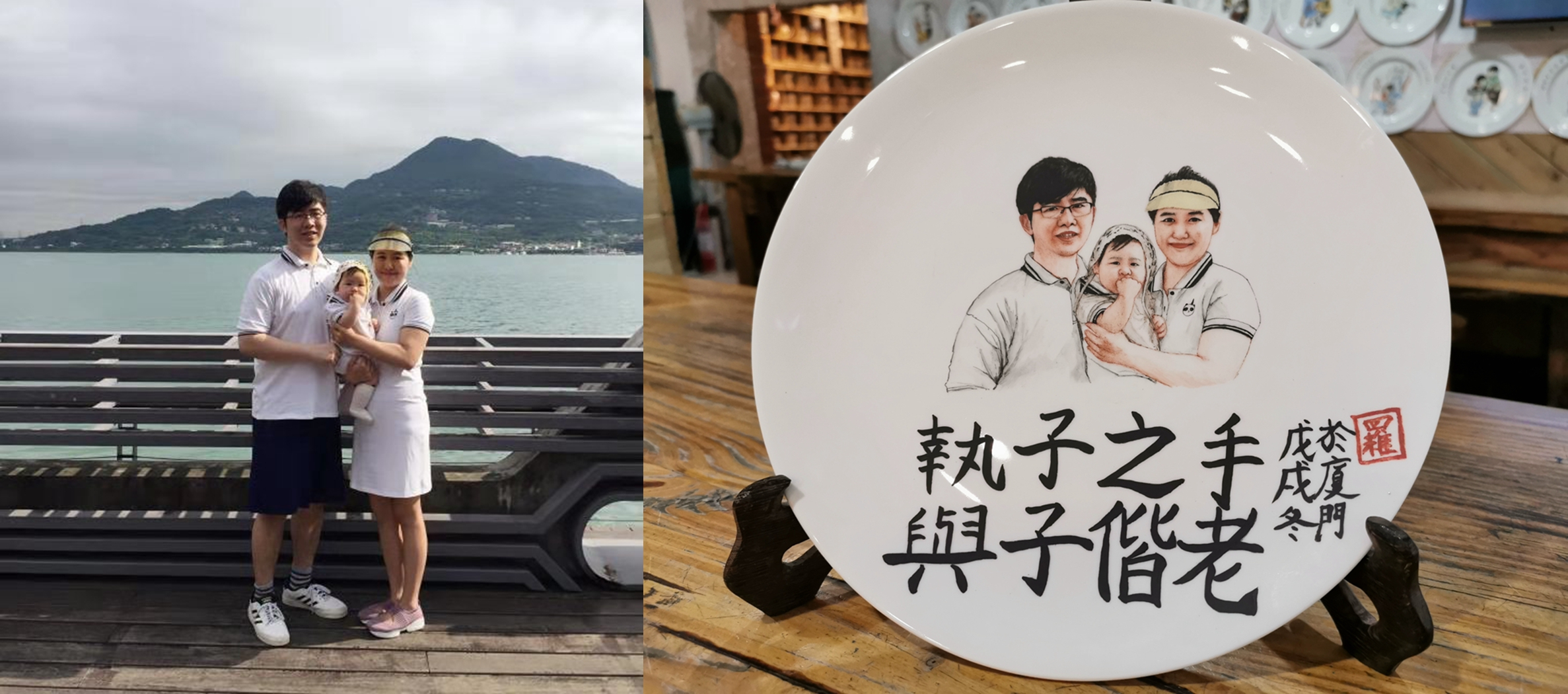
Luo Dingjun poses for a photograph with his wife and daughter in Xiamen, Fujian Province, China. /Photo courtesy of Luo Dingjun
Luo Dingjun poses for a photograph with his wife and daughter in Xiamen, Fujian Province, China. /Photo courtesy of Luo Dingjun
'Two sides are originally a family'
Currently Luo is living in Shenyang, the largest city in northeastern China, with his wife and daughter.
"My wife is from Shenyang. It only takes about four hours by bullet train from there to Beijing. It's quite close. So we decided to settle there," Luo said.
He added that his parents then often fly from Taiwan to visit them, and together with his wife's family they "spent many warm and happy moments." For him, the meaning behind the reunion of the extended family is even more profound.

Luo Dingjun is pictured in a vlog that introduces Beijing food, which was then posted on the "Cross-Strait Youths" WeChat OA.
Luo Dingjun is pictured in a vlog that introduces Beijing food, which was then posted on the "Cross-Strait Youths" WeChat OA.
"My family is originally from Anxi County in Quanzhou, Fujian Province," said Luo, noting that during the Qing Dynasty his ancestors moved across the Strait to Taiwan and settled in Taipei in the 1860s.
Luo is the eldest son in the fifth generation since then, and he revealed that "I feel that I'm obliged to find our roots on the mainland. Though now I'm living in the north, I often go to Quanzhou. My father and I went there to find our ancestral home. But we're still searching for it."
He describes his story as a vivid proof of the widespread saying: "Two sides are originally a family," adding that, "we share the same Chinese dream."
(Cover image by Yin Yating)